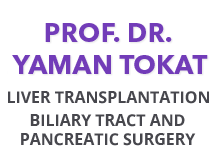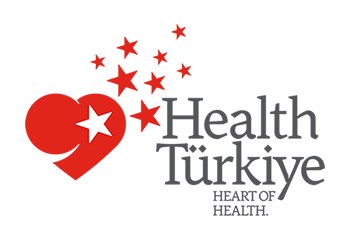Life After Transplantation
Patients who have undergone organ transplantation often describe themselves as being “reborn” and feel as though they are starting a brand-new life. Many celebrate their surgery date as their “Transplant Birthday.” With the success of your transplant, a much better quality of life awaits you.
Returning Home After Transplantation
Going home after transplantation is usually a joyful and emotional event, but in the first few weeks, this happiness may be accompanied by anxiety or even mild depression. It is very important to understand that recovery is a process that takes weeks. Adjusting to your new lifestyle will take time for both you and your family; living with a transplanted organ is a gradual learning experience. Most people cope better when they stay active and make a conscious effort to overcome the challenges of rehabilitation.
By the end of the initial three-month recovery period, almost all liver transplant patients return to their normal, pre-illness lives. Despite potential complications that may affect transplant recipients, most patients regain a normal lifestyle—they work, have families, raise children, and play a productive role in society.
Recovery may take several weeks, but you have the power to shorten this period.
Diet and Nutrition After Transplantation
Before your transplant, you may have been ill for a long time and likely lost weight. Therefore, eating regularly forms an essential part of your recovery. A healthy and balanced diet will help you regain strength. Unfortunately, one of the most common side effects of cortisone therapy is a marked increase in appetite. As a result, weight gain becomes a long-term concern for many transplant patients, and you may need a low-fat, low-sugar diet to keep your weight and blood sugar under control. Consult a dietitian to help you create a meal plan that provides balanced nutrition according to your needs.
Your diet should include:
- Fruits
- Vegetables
- Whole grains and bread
- Low-fat milk and dairy products or other sources of calcium
- Lean meats, fish, poultry, or other protein sources
Nutritional Guidelines to Follow
- Weigh yourself daily.
- Avoid sugary snacks like cakes and cookies between meals.
- If you feel hungry, eat a small portion of fruit or low-calorie vegetables.
- Try to drink about two liters of fluids daily. This helps your kidneys and aids in eliminating waste. Bottled water, herbal teas, low-fat pasteurized milk, and fruit juices are good options.
- Always wash and peel fresh fruits before eating.
- Vegetables grown in soil, such as potatoes, should always be peeled and boiled in hot water.
- Cooking vegetables in a pressure cooker helps preserve their vitamins and saves time and energy.
- Avoid eating raw vegetables like lettuce.
- Do not eat unpasteurized cheese and avoid moldy cheeses.
- Buy small amounts of milk, cheese, butter, and yogurt at a time so that you can consume them fresh. You may need a low-fat, low-sugar diet to help maintain your weight and blood sugar levels.
Salt (Sodium) Intake After Transplantation
Another side effect of cortisone is that it causes your body to retain salt. This can lead to fluid retention and high blood pressure. You should limit your salt intake by following these guidelines:
- Use less salt when cooking meals
- Avoid adding salt to cooked food
- Stay away from salty snacks such as potato chips
- Avoid canned foods (they usually contain high levels of salt)
- Remember that corticosteroids cause your body to retain salt.
Exercise After Transplantation
Physical activity rejuvenates both the body and the mind. Patients who engage in regular exercise often report feeling better overall and having more energy for work, recreation, and personal relationships. Exercise helps burn excess calories and assists in maintaining a healthy weight.
It is important to exercise daily to strengthen muscles that have weakened during your illness. Your exercise program should progress gradually and increase in intensity over time. This way, you can enjoy the full benefits of exercise without causing injury or strain. Walking is the best form of exercise, especially outdoors in fresh air—it helps you sleep better and improves bowel function. Climbing stairs is also a good way to start, but avoid overexertion and rest whenever you feel tired. You will soon notice that your strength is returning, allowing you to try other forms of exercise. Cycling, swimming, and walking are excellent ways to build overall strength, and if everything goes well, you may return to hobbies such as tennis or jogging within three months after surgery. Regular exercise also helps prevent osteoporosis, one of the side effects of medication. Always consult your doctor or transplant team before starting any exercise program.
WARNING
If you experience any of the following symptoms, stop or postpone your exercises until you consult your doctor:
- Pain or pressure in your chest, neck, or jaw
- Extreme fatigue not related to lack of sleep
- Unusual shortness of breath
- Dizziness or lightheadedness during or after exercise
- Persistent rapid or irregular heartbeat during or after exercise following transplantation
Driving After Transplantation
You are not allowed to drive for the first four weeks following your transplant.
Alcohol After Transplantation
You should avoid alcoholic beverages, as alcohol is metabolized by the liver and can cause liver damage.
Smoking After Transplantation
Quit smoking completely! Smoking is harmful not only to you but to everyone. If you need help, consult your doctor, who can refer you to a team that will provide the necessary support.
Sexual Activity After Transplantation
You can resume sexual activity a few months after a successful transplant, once you feel well enough. Most men regain their sexual function, and most women find that their menstrual cycles return to normal a few months after surgery. However, some medications may decrease sexual function. If you experience any problems, seek advice from your doctor or transplant team.
Kissing someone is not a problem unless you have an infection such as a cold or herpes. Both partners should wash thoroughly with soap and water before and after intercourse.
Because some immunosuppressive medications reduce the effectiveness of birth control pills, their use is not recommended. Intrauterine devices (IUDs) are also not advised due to the increased risk of infection. Condoms are the best way to prevent both infections and unwanted pregnancies. Diaphragms are another option. Some women may wish to discuss these choices with their gynecologist.
Reproduction After Transplantation
Many men have fathered children after transplantation, and many women have given birth to healthy babies. Women should discuss their desire to have children with their doctor or a member of the transplant team. You should wait at least one to two years before becoming pregnant. Before pregnancy, you must have good liver function, no illness that could threaten your health or your baby’s, and you should be on a low-dose immunosuppressive treatment plan.
Travel After Transplantation
There is no reason you cannot travel to different parts of the country or the world; however, use common sense and avoid places with poor sanitation or contaminated food and water. Discuss your travel plans with your doctor before going on any trip. Don’t forget to take enough medication to last for the entire trip and leave contact information where you can be reached. Always carry an adequate supply of your medicines while traveling.
Vaccinations After Transplantation
You should not receive any live or attenuated (weakened) vaccines (such as oral polio or measles). You can receive vaccines made from killed or inactivated viruses, such as tetanus, but always inform your doctor or transplant team before receiving any vaccine.
Pets and Plants After Transplantation
Due to an increased risk of infection, keeping pets is generally not recommended. However, for many people, having and caring for a pet can be emotionally beneficial and aid recovery. Fish, reptiles, and small rodents carry the lowest risk of infection. Dogs are another option, and short-haired breeds are easier to keep clean. Cats should be avoided due to the risk of toxoplasmosis, and birds are not recommended because they can carry Staphylococcus bacteria.
If you already have a pet, avoid contact with its feces and wear rubber gloves when cleaning cages. Ideally, ask someone else to handle this task. Do not allow your pet to lick your hands or face; if it happens accidentally, wash the area immediately with soap and water. Keep your pet’s accessories, such as artificial bones, toys, and feeding bowls, clean and separate from your personal belongings.
Potted plants are not recommended due to the risk of infection from soil microbes. Because of the high risk of infection, you should avoid gardening, farming, or handling soil during the first year after transplantation. Later on, you may do limited gardening, but avoid activities such as planting or leaf collecting, and always wear gloves.
Home Cleaning After Transplantation
Clean the bathroom and kitchen, especially the refrigerator, regularly. Special disinfectants are not necessary; regular household detergents and liquid soaps are sufficient. Other rooms should be cleaned as usual, and bed linens should be changed weekly.





